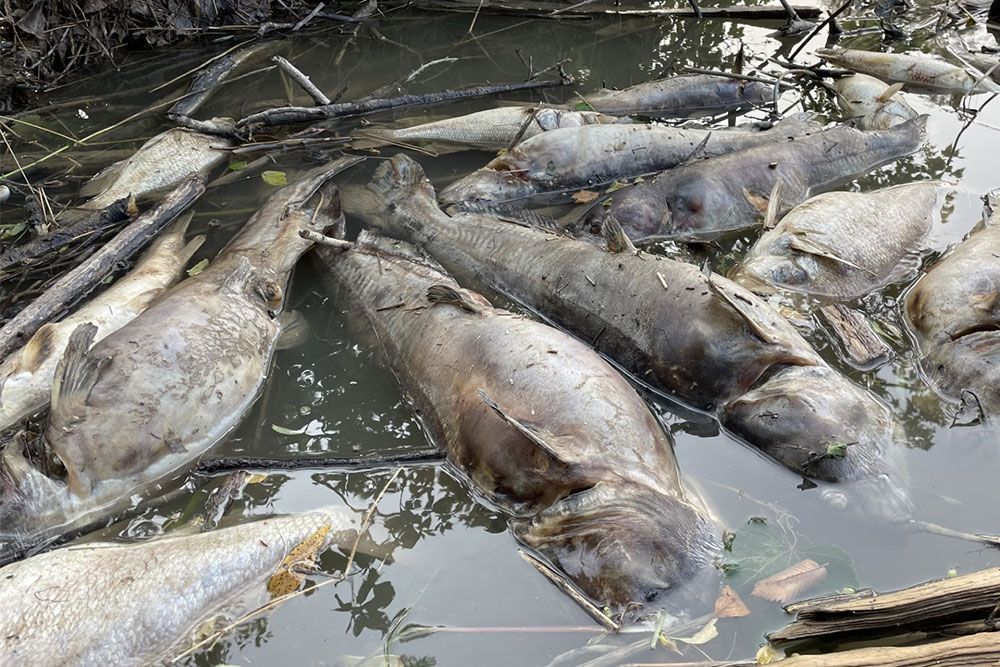Dead fish discovered along Lake Huron

Ausable Bayfield Conservation visits sites of fish die-offs in Port Franks and Lake Huron to provide local technical expertise in support of investigation by MECP
Aquatic Biologist with Ausable Bayfield Conservation Authority provides support to Ministry staff in their investigation into possible causes
Local residents reported dead fish in Port Franks and area and in Lake Huron in July. Sometimes, when there is a die-off of fish of a single species, the cause may be a virus affecting that species. In the most recent occurrence of dead fish, there have been die-offs of fish of several species.
For updates, please read this web post:
The Ontario Ministry of the Environment, Conservation and Parks (MECP) has responded to the reports. MECP staff members have attended sites, where dead fish were found, to investigate possible causes of the fish die-offs. An Ausable Bayfield Conservation Authority (ABCA) staff member has also visited several sites and provided local information and expertise in support of the Ministry investigation. “We appreciate the concern shown by our watershed residents and the reports they provided, to the Ministry and to us, through phone calls and emails,” said Kari Jean, ABCA Aquatic Biologist.
In a fish die-off, or fish kill, the death of fish may result from a virus or a single point source such a chemical spill or it can occur as a result of a number of factors. It is not yet known what factor or factors contributed to the dead fish discovered over the past few days, she said. There are many potential contributors including low oxygen, temperature and weather fluctuations, sediment and runoff, among others. After the MECP has concluded its study of the fish die-off, ABCA staff say they will share information they receive from that investigation.
It’s a concern for everyone when an occurrence like this happens, Jean said. Incidences like this underline some of the issues that need to be addressed to prevent and reduce incidences like these and to limit the impacts on freshwater fish species including species at risk. Further implementation of the Ausable River Action Plan is needed, she said, to limit harmful impacts on fish and other aquatic species. “With the support of funding partners and local landowners, we are completing a number of local projects that can help to protect our fish species by slowing water down and allowing it to soak into the ground so that it doesn’t run off the landscape,” she said.
“We need to continue to do more work to protect the habitat these fish need and to reduce the potential for harmful impacts.”
It is also important to continue to monitor the populations of aquatic species, such as fish and the globally imperiled freshwater mussels, in the local watershed, she said, to compare with data from previous years. This makes it possible to better understand the extent of impacts of events like these and to understand the actions needed to reduce the potential for more incidents like this one.
Ausable Bayfield Conservation and researchers from University of Toronto Scarborough hosted an information session, called Healthy Waters, Healthy Fish, at Port Franks Community Centre on Friday, August 25, 2023.
To learn more about the Ausable River Action Plan, and the work needed to monitor and to protect fish species in this nationally important river, you may visit the Ausable River web page.
